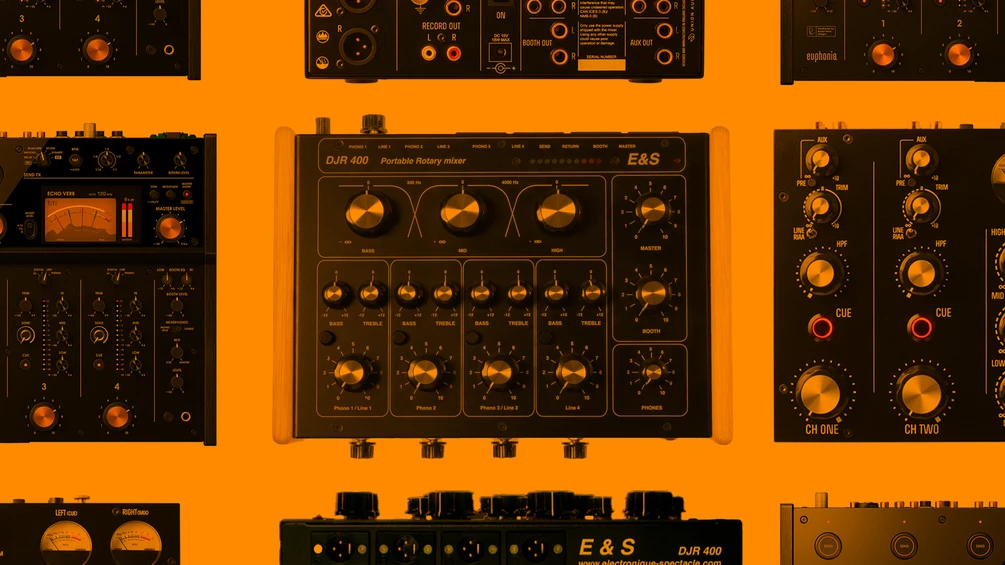
Are rotary mixers actually better?
“When we launched Radius 2 it was truly unique,” explains MasterSounds founder Ryan Shaw. “Instead of having a traditional layout, we had a high pass filter per channel and super simplistic feature set, which at the time divided opinion, but we knew it would, and wanted to offer something we loved and wanted others to experience. The mixer was a true compact powerhouse.” The Radius was designed by Andy Rigby-Jones, though the two have since parted ways. “Andy’s circuit design meant the mixer was a real piece of high-fidelity audio equipment — essentially a wonderful preamplifier for DJing, unreal sound, and a fresh approach to the scene.”
That approach sparked a mini rotary revival. “Looking back, I was in the right place at the right time,” explains Shaw. “[It was] a catalyst [that ensured] DJs experience quality, in terms of design, sound and crucially, service. I’ve seen that market change hugely, with people wanting quality [and moving] away from mass market products — that for me are sterile — to smaller, boutique ones like us, showcasing our passion for what we do.”
AlphaTheta— responsible for the Pioneer DJ brand — also spotted that trend, both in the market and in requests from the DJ community. “Around five years ago we were monitoring the rotary DJ market,” says Rob Anderson, EMEA Product Planning Manager at AlphaTheta. Pioneer DJ had previously launched rotary modification kits for the DJM-800, essentially replacing the fader with a pot, but keeping the signal path intact. Anderson says they were “never very popular”.
When Pioneer DJ released their flagship mixer, the V10, it was largely praised for its sound quality, and they once again looked into adding rotary mod for DJs who prefer the torque and feel of a knob over a fader. “Because there were six faders,” says Anderson, “the rotaries were super cramped so your fingers got caught in between them. We decided to abort that idea and instead develop a rotary from scratch, to fully facilitate what rotary artists actually want.”





